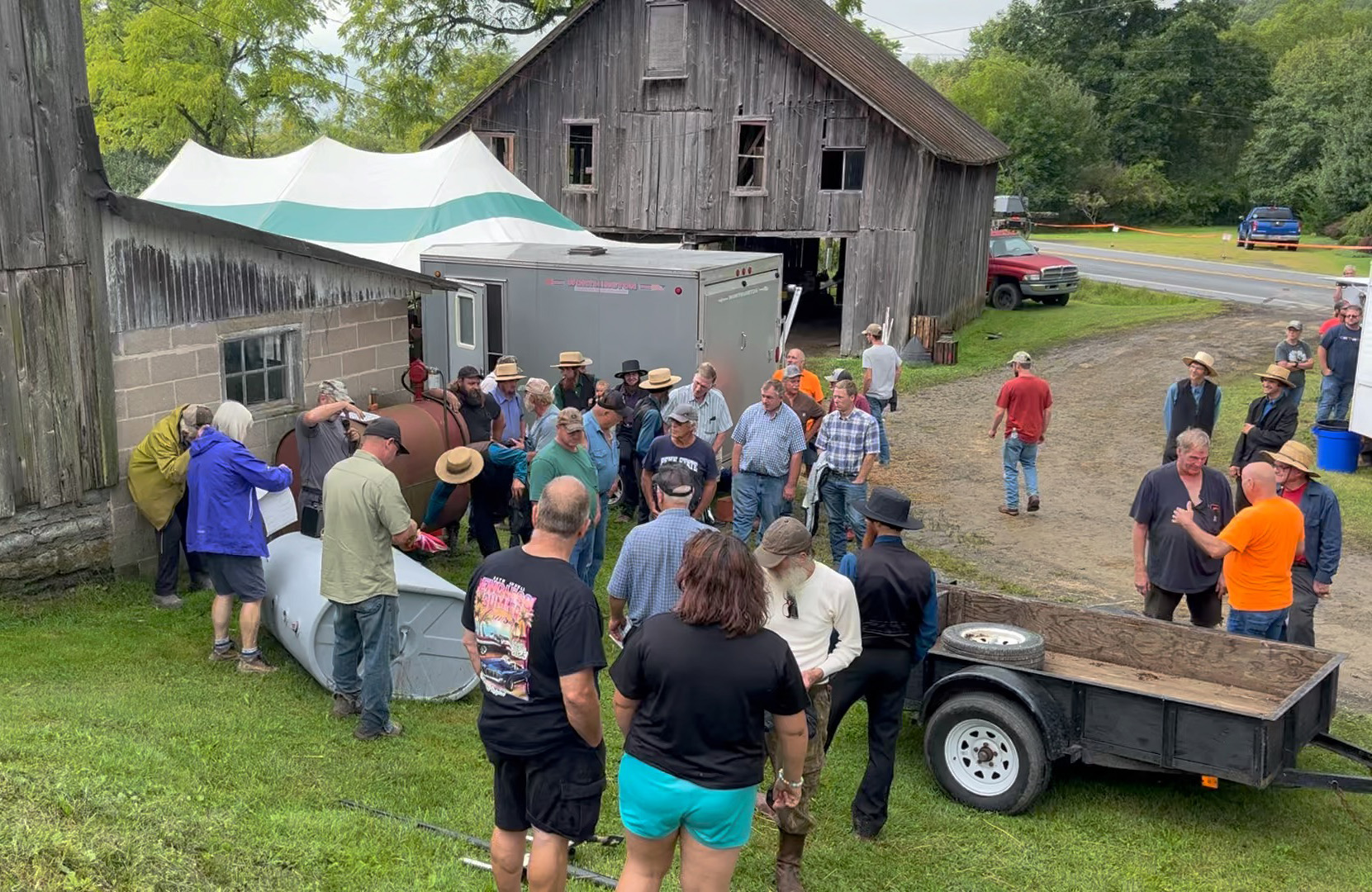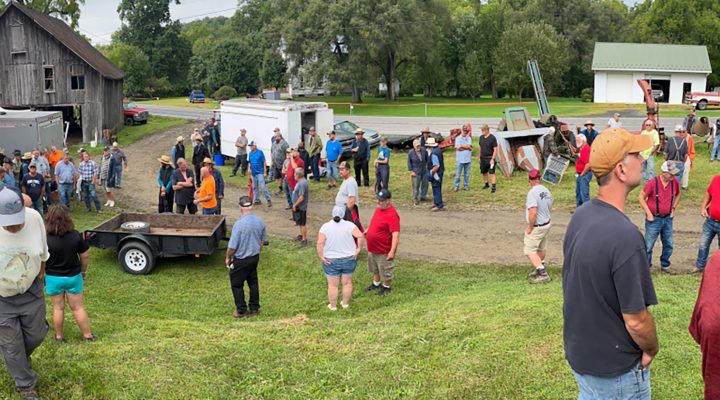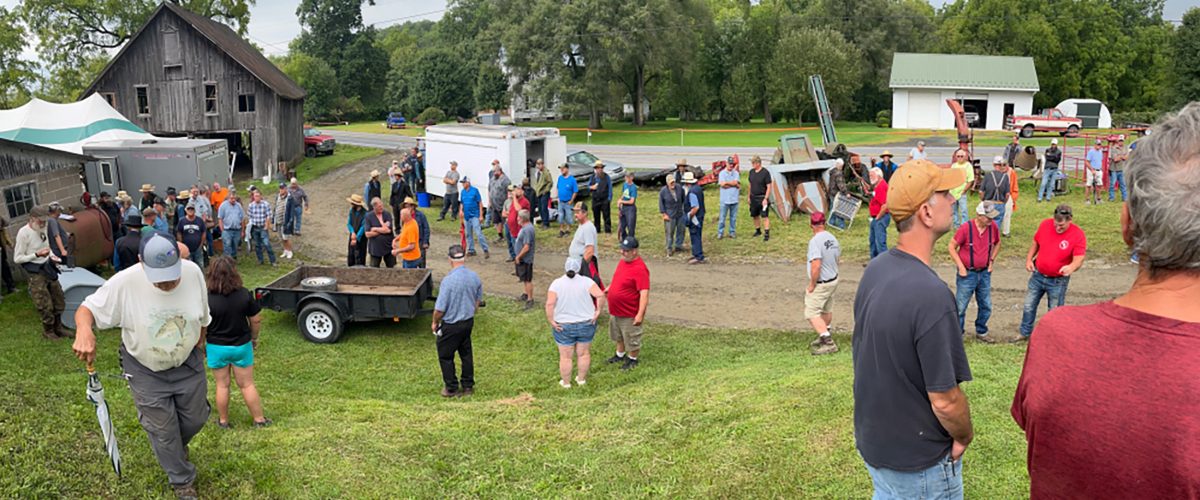Strangers carted away my friend’s history yesterday, piece by piece.
An auctioneer’s singsong cajoling held Dave’s life up for examination and bid. Chains, tractors, implements, house furniture, fuel tanks, rakes and hoes all appraised unemotionally for their “value” by area farmers hoping to find a deal, make a steal.
Dave’s farm, 8 curvy, hilly miles from any main road, looked like a Ford dealership, as 120 trucks — at least 100 of them Ford F150s, 250s and 350s — parked nose first along the edge of the cornfield like piglets nursing. Amish neighbors in their round straw hats parked their buggies in the yard and tied their horses to a shade tree. An early morning deluge left the grounds muddy but didn’t discourage potential buyers from picking at the accumulated instruments of Dave’s farming life.
Dave is in the second year of an ALS diagnosis, and at age 72 he decided to sell the farm where he’s lived 46 years, raising his three children in a Trumanesqe environment in rural Pennsylvania.
He is slowly losing muscle strength everywhere but in his smile.

When major items like his John Deere tractors didn’t sell for what he’d hoped, he shrugged and said, “Let ’em go.” Trying to sell them on the open market later, hoping for a more equitable price, was just too much trouble to contemplate.
Dave and his dad built the house atop the hill, where his wife huddled now with a long-time neighbor to avoid seeing four decades of her life picked over, devalued and carted away. The house wasn’t quite finished in time for their first child to come home to it from the hospital. But it was finished two weeks later, and she’s lived there ever since.
“He eventually realized he was driving his father around on a farewell tour.”
Dave decided to sell the house, barns and 45 acres on which he’d lived his entire adult life so Debbie wouldn’t have to … later. Once decided, his second son, Mark, drove him through the rural neighborhood to pass out flyers announcing the sale. They left fliers with neighbors who Mark knew did not have the means as potential buyers, but he eventually realized he was driving his father around on a farewell tour.
“He just wanted to say goodbye to the neighbors he’d known for 45 years,” Mark said. When Mark realized that, he settled in and enjoyed the ritual.
The man who’d purchased the farm was present at the auction. He’d bought it for his daughter and son-in-law as a place to raise their children, in rural Pennsylvania, giving them the benefit of idyllic life in rolling hills, among Amish farmers, an area where church and school are the gravitational centers of community life.
Dave’s adult children and their spouses were present and helping. Grandchildren roamed through the barns for the last time, daringly climbing steep ladders to where hay once was stacked high, making sure mom and dad saw their accomplishment. Dave’s sons recounted adventures with tractors, camping in the woods, trapping ground hogs and shooting that would make their survival a mystery.
This was their home being carted away on the backs of trucks and trailers. They weren’t sad — yet. The hard decision already had been made: to sell the farm and auction off the equipment. This was just the physical manifestation of their decision.
But when the last cabinet was pushed into the back of a minivan and the last tractor was loaded onto a flatbed, when the camper the grandkids slept in the night before rolled away behind a pickup, the somber reality settled over the property like an early morning fog settles into valleys.
I hugged each goodbye, Dave’s arms limp at his sides, and thanked them for including me in their family. Through thick and thin, good times or bad, through the struggles inevitably ahead, he’s my brother and the auction was another milestone toward “next.”

Norman Jameson
Norman Jameson is a career journalist and development officer, living in Winston-Salem, N.C. This article is republished from his blog, Words and Deeds.


